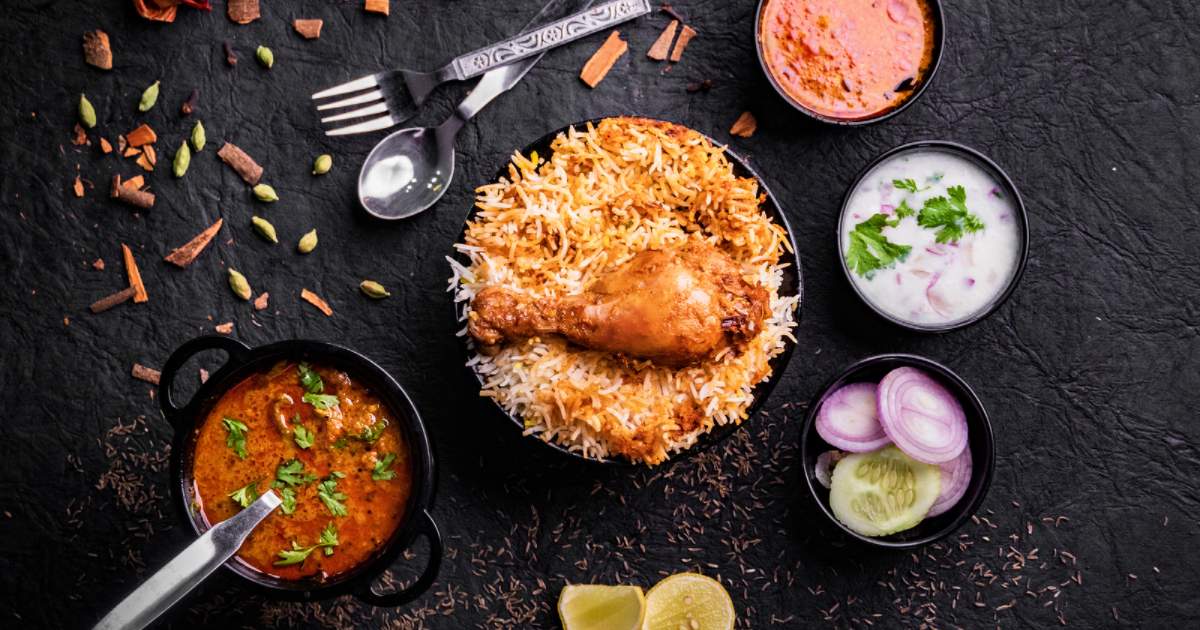Ramadan is a holy month of spiritual and physical renewal, where Muslims fast from sunrise to sunset. While this is a great time for reflecting and strengthening our relationships with Allah, for many, it can also be a challenge to get inspired about meals during Iftaar time. Whether you’re looking for inspiration on what to prepare or need easy recipes that require minimal effort but still have maximum taste and nutrition, we’ve got you covered! This blog post will provide you with some delicious and healthy recipe ideas so your iftar table will be full of flavor while still being light on the stomach.
Table of Contents
Benefits of Fasting During Ramadan
Fasting during Ramadan is a great way to reset your body and mind and can provide numerous physical, mental, and spiritual benefits. It helps promote weight loss, improves immune system function, reduces the risk of chronic diseases such as diabetes and heart disease, boosts energy levels, increases productivity, enhances mental clarity and concentration, reduces stress, encourages self-discipline, and strengthens relationships with family and friends. So if you’re looking to get healthier in Ramadan, fasting can be an excellent way to do so!
Tips for Eating Healthy During Ramadan
Regarding eating healthy during Ramadan, it’s important to ensure that your meals are balanced with all the essential nutrients needed for optimum health. Make sure to include plenty of fresh fruits and vegetables, lean proteins like chicken, fish, or beans, healthy fats such as olive oil or nuts, and whole grains like brown rice or quinoa. Avoid sugary drinks and processed foods, and try to include a variety of colors in your meals. Also, be sure to stay hydrated by drinking plenty of water throughout the day and limiting caffeine intake to avoid dehydration.
5 Best Healthy Ramadan Recipes for Iftaar
Now that you know how to eat healthy during Ramadan, here are some delicious and nutritious recipes to get you started!
Lentil Soup with Spinach
This comforting soup is packed with fiber-rich lentils, antioxidant-rich spinach, and flavor-enhancing spices like cumin and turmeric. Delicious served hot or cold for a healthy and filling meal.
Eggplant & Chickpeas Curry
This flavorful curry dish is a great source of protein, fiber, and healthy fats. The eggplant lends its smoky sweetness to the creamy chickpeas for a delicious and nutritious dinner.
Quinoa & Veggies Pilaf
Forget boring white rice with this quinoa and veggie pilaf are packed with flavor and nutrition. The quinoa base provides a nutrient-rich boost, while the mix of colorful veggies creates a delicious one-pot meal.
Mediterranean Roasted Vegetables
This easy side dish contains flavor and nutrition. The combination of roasted bell peppers, tomatoes, onions, and garlic creates a compelling mix of flavors. At the same time, the olive oil adds a healthy dose of heart-healthy fats.
Chickpea & Spinach Salad:
This colorful salad is packed with protein and fiber from chickpeas and spinach, making it a filling option for Iftaar. The addition of feta cheese gives it an extra flavor, while the lemon vinaigrette adds a zesty finish.
FAQs: Healthy Recipes For Iftar
Q1: What are three 3 important things during Ramadan?
During Ramadan, the three most important things to keep in mind are: maintaining a healthy diet, staying hydrated, and finding time to rest and reflect. Additionally, it is important to remember the spiritual aspects of Ramadan by engaging in prayer and charity work.
Q2: What are some tips for eating healthy during Ramadan?
Some tips for eating healthy during Ramadan include: making sure to include plenty of fresh fruits and vegetables, lean proteins like chicken, fish or beans, healthy fats such as olive oil or nuts, and whole grains like brown rice or quinoa, avoiding sugary drinks and processed foods staying hydrated by drinking plenty of water throughout the day and limiting caffeine intake in order to avoid dehydration.
Q3: Which juice is best for Iftar?
The best juice for Iftar is made with fresh fruits and vegetables, such as carrots and apple juice. This type of juice is packed with vitamins and minerals and will help to keep you hydrated during your fast. Additionally, it is best to avoid sugary drinks like soft drinks or fruit juices high in added sugars.
Q4: What are the two main meals of Ramadan?
The two main meals of Ramadan are Suhoor and Iftar. Suhoor is the meal eaten before sunrise to provide sustenance during the long day ahead, while Iftar is the meal that breaks the fast after sunset. Both meals should include healthy foods that will provide you with the necessary nutrients for optimum health.
Conclusion
During Ramadan, it is important to be mindful of your health and ensure you get all the necessary nutrients for optimum well-being. Eating a balanced diet of fresh fruits, vegetables, lean proteins, healthy fats, and whole grains will help to ensure your meals are nutritious. Additionally, staying hydrated throughout the day is essential for maintaining energy levels and avoiding dehydration. With these tips in mind, you can enjoy some delicious and healthy recipes during Ramadan that will provide many health benefits! Happy Ramadan
